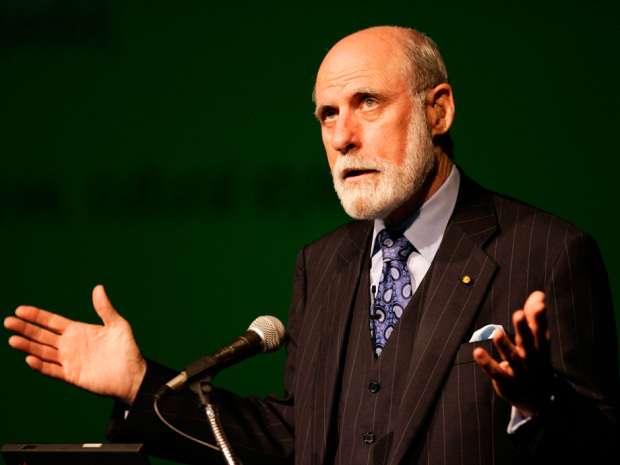The father of the Internet Vint Cerf called supporters of the introduction of control over the Network dinosaurs with a tiny brain

Next week in Dubai at the conference of the International Telecommunication Union an unprecedented discussion will be held on how the Internet should be regulated, Reuters writes . Many countries want to endow the UN body with broad regulatory powers, while others, including the United States and the European Union, argue that this will lead to the end of the open Internet.
The essence of most of the proposals remains secret, but one leak of information has revealed that Russia wants to give countries the right to regulate the national segment of the Internet, and a group of Arab countries advocates universal identification of Internet users. Some developing countries and telecom providers, meanwhile, want content providers to pay for the transmission of Internet data.
')
Usually, the diplomatic “father of the Internet” Vint Cerf, commenting on the proposed changes to Reuters, stated: neck.
In fact, most countries seem to agree that the Internet should be regulated by a UN agency. In their opinion, this will help to cope with the surge in cybercrime. Many countries believe that the current regulation of the Internet by the non-profit organization ICANN and other companies essentially means control of the network by the United States.
However, Google, in response to this offer last week, asked users to "express support for the free and open Internet" in social media. If ITU transfers control of the Internet to the UN and accepts the restrictions mentioned, protests against ratification of the changes may begin in the United States and Europe.
ITU Secretary-General Hamadoun Toure, from whom Reuters also took a comment, said that only soft regulation of cyber security would be approved at the conference. He explained the need for this as follows:
“If you own roads, then you are not the owner of the cars, and even less the goods they carry. But when you buy a car, you do not buy a road. You need to know the number of cars and their size and weight, so you can build bridges and set the right number of lanes. You need soft control to install multiple traffic lights. ”
Since the proposals of Russia, China and other countries were more radical, gentle regulation would look like a compromise for almost everyone.
Source: https://habr.com/ru/post/160893/
All Articles